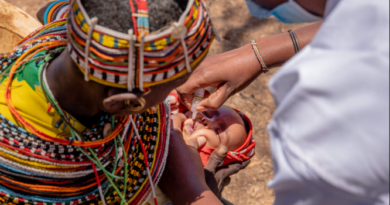Mouse avatars might improve multiple myeloma treatments 2023
An international team of researchers, led by Dr. José ngel Martnez-Climent of the Cima University of Navarra, has created mouse avatars of patients with multiple myeloma in order to study and develop personalized treatments for this blood cancer, the second most common hematological cancer and, in most cases, incurable. These synthetic mice can replicate the genetic and immunological variety of the disease’s development and evolution in people. This development will enable researchers to construct more effective and individualized multiple myeloma treatments.
This finding, which paves the way for research into additional incurable hematological and solid cancers, is published in Nature Medicine.
Moreover, hospitals, research facilities, and biotechnology and pharmaceutical businesses from Spain, Switzerland, the United States, and Japan have participated in this multicenter study. The project’s principal investigators are affiliated with the Cancer Center Clinica Universidad de Navarra, the Centro for Investigación Biomédica en Red in Cáncer (CIBERONC), and the Instituto de Investigación Sanitaria de Navarra (IdiSNA)

A “catalog” of multiple myeloma to better its treatment
Multiple myeloma is a malignancy of the bone marrow that affects the blood. It is caused by the growth of plasma cells, which are immunological cells responsible for antibody production. It is a heterogeneous illness, meaning it can manifest in many ways and respond differently to therapy.
To meet the medical need for new treatments to cure the disease, the researchers analyzed more than 500 genetically heterogeneous mice that develop multiple myeloma and tumor cells from more than 1,000 patients with the disease using genetic engineering and multi-omic cellular and molecular technologies. These samples are from hematologic cancer patients treated at the Cancer Center Clinica Universidad de Navarra. This allows researchers to study the progression of the disease, test therapeutic alternatives, and predict the response to combinations of immunotherapy drugs in the clinic, according to Marta Larrayoz, a researcher in the Hemato-Oncology Program at the Cima University of Navarra and the study’s lead author.
Important repercussions for patients
To progress laboratory work, researchers must be able to compare and confirm the information offered by preclinical models with patient data.
Researchers will be able to predict treatment results with next-generation immunotherapies and simulate in the lab clinical conditions linked with the poorest outcomes, such as high-risk multiple myeloma, extramedullary disease, and acquired therapeutic resistance, according to this study. Martnez-Climent explains, “This circumstance provides us with the opportunity to enhance the research of novel treatment options and optimize the design of future immunotherapy clinical trials.” In addition, “we are testing novel therapies in experimental models at stages of the disease where multiple myeloma cells may be most susceptible, particularly in early precursor conditions or in the minimal residual disease state (after treatment, when few tumor cells remain)”.
The ultimate objective, according to the researchers, is to “translate the laboratory discoveries to the clinic” and to “extrapolate our research ambitions to additional hematological malignancies and solid tumors that are incurable with present therapies.”
The imCORE Network, the Ministry of Health, the Ministry of Science and Innovation, the Carlos III Health Institute (co-financed with ERDF money), the Paula and Rodger Riney Foundation, and the Arnal Planelles Foundation have provided financing for this project. It has also received funding from various governmental and commercial entities, including Iberdrola, through the Spanish Association Against Cancer’s “Accelerator Grants” program (EDITOR Project).
Participating institutions in the study:
- Spain: Cancer Clinic Clínica Universidad de Navarra, Centro de Biología Molecular Severo Ochoa, Centro Nacional de Investigaciones Oncológicas, Navarrabiomed.
- Roche Pharmaceutical Innovation Center in Switzerland.
- University of Tsukuba in Japan.
- The following institutions are located in the United States: Mayo Clinic, Yale University, Dana-Farber Cancer Center of Harvard University, Cornell University, and Genentech.




